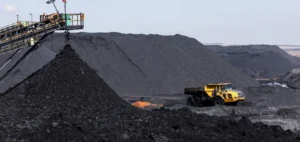South Africa is to benefit from $8.5 billion in foreign investment to develop its energy sector.
Eskom intends to take advantage of this financial windfall to switch to energy sources that are less polluting than coal.
In South Africa, power generation is failing
In South Africa, Eskom has 15 aging coal-fired power stations, producing over 80% of the country’s electricity.
By 2035, 22,000 MW from coal-fired power stations are due to close, out of a total of 46,000 MW.
The company also operates the only nuclear power plant on the African continent.
A $25 billion debt
The South African state-owned company is $25 billion in debt.
It is gradually paying off this debt in line with government subsidies.
Eskom sees the coal crisis as an opportunity.
Having failed to attract foreign investment, Eskom now knows that an $8.5 billion plan is on the table.
This money is to be used only to get out of the coal economy.
The outlook
Eskom is therefore studying a number of transition projects.
Firstly, the installation of component factories forrenewable energy infrastructures on South African soil.
Secondly, the development of two gas-fired power station projects with an overall potential of 4 GW, including a 1 GW coal-fired power station conversion.
Generally speaking, the $8.5 billion granted by Western countries at COP26 will boost and diversify South Africa’s energy mix.
New infrastructure to connect the country’s best solar and wind energy zones is planned.
The private grid will also be strengthened to accommodate a larger share of private electricity production.






















